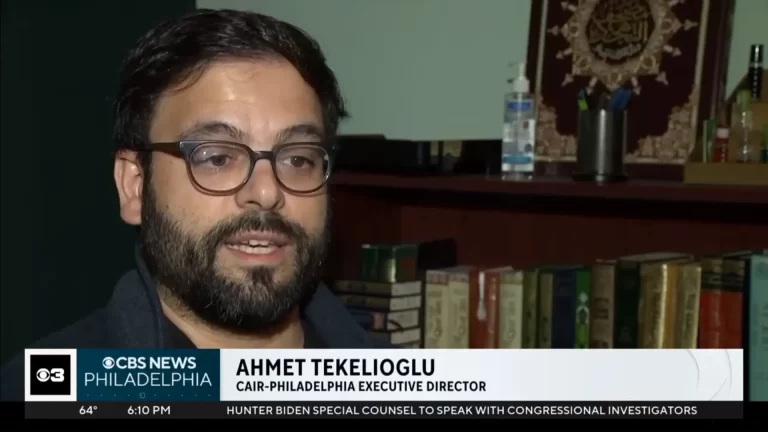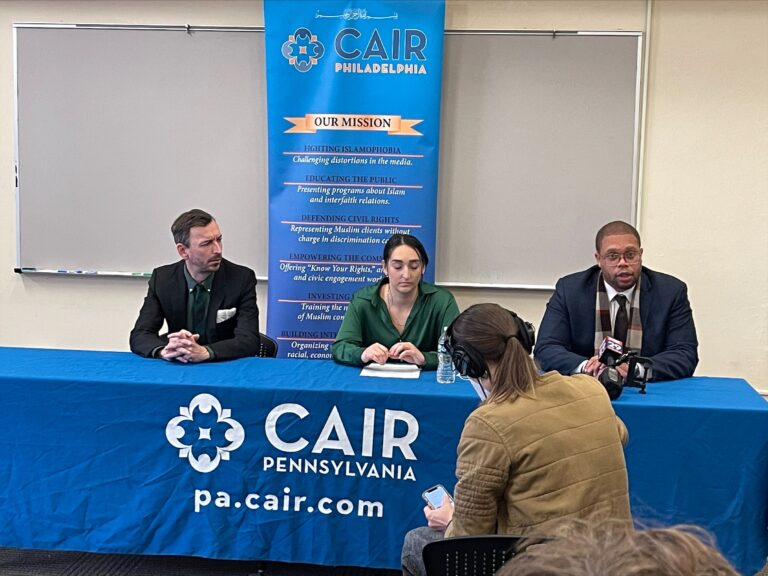![]()
by Sean O’Sullivan
The News Journal
YORK, Pa. — Moiez Masood is going home.
Immigration Judge Andrew Arthur approved a release on bail for the 21-year-old Newark-area resident, who has been detained since Nov. 12 by immigration officials.
“We’ve got a bond!” announced Masood’s attorney John Vandenberg to a waiting room at the U.S. Immigration Court in York that was packed with friends, family and supporters of the University of Delaware student.
The crowd erupted in cheers, tears and hugs.
“It is a good day,” Vandenberg told the group of about 40, which included Masood’s fiancee and her family.
Masood’s mother, Shagufta Masood — who last week said she was so stressed and concerned by the situation that she could feel nothing — fought back tears.
“I’m really happy,” she said.
Guards allowed the celebration to go on briefly, then ordered all people who no longer had business to leave.
It is not over for Masood and his family. The deportation case against him is still pending.
But the ruling means he can now wait at home with his family rather than at a detention facility while immigration officials decide if he should be granted asylum or be sent back to Pakistan.
Federal prosecutors had been expected to oppose Masood’s release at a hearing Tuesday and present evidence they had against him.
But in a meeting beforehand, the judge immediately ordered a $5,000 bail bond, without any public proceeding.
After the family posts the cash bail today, they will have to drive to a bus station in Harrisburg, where detainees from the York facility are released.
Vandenberg said he did not think Tuesday’s ruling reflects on the merits of Masood’s pending case because of the different legal standard associated with setting a bail bond. But he said the process to resolve cases like this can take one to three years, which Masood can now spend at home.
His release also will allow him to go through with his planned marriage to Fatima Kahn, a Canadian citizen, in January and possibly will allow him to complete his studies in civil engineering at UD.
But, most importantly, Vandenberg said, is that the release will allow him to continue to aid his family, as he has for years.
Masood’s family had been concerned that without him they faced “disaster” because his mother, who is ailing, relies on him to care for her and help her with the family’s youngest member, 14-year-old Saad, who has cerebral palsy.
Masood’s 19-year-old sister, Zuneera, who suffers from a rare blood disorder that requires transfusions every three weeks, is often unable to assist her mother, and said she, too, relies on her brother.
Vandenberg said when he informed Masood that he was to be released on bond, “He was breathless. He’d been so anxious. It was like the world was lifted off his shoulders.”
Zuneera Masood also was overcome at Tuesday’s news and groped to find words to describe her feelings.
“I’m ecstatic. I’ve never felt so happy,” she said in between hugs.
“There is still justice here,” said Moiez’s father, Masood Sadiq, who was held at the same York facility eight years ago before immigration officials granted him a humanitarian deferment of his deportation so he could care for his wife and ailing children.
Experts said in sworn statements at the time that to send Zuneera and Saad Masood — who are both U.S. citizens by birth — back to Pakistan would be a death sentence.
Immigration officials picked up Moiez Masood last month because, in addition to being “out of status” like his father, investigators were concerned about four online posts he had made in 2008.
None of the posts threatened violence, advocated terrorism or expressed anti-American views. But the blog they were posted on was associated with U.S.-born radical cleric Anwar al-Awlaki.
Family members and Vandenberg, however, noted al-Awlaki was not widely identified as a radical until after November 2009 and the Fort Hood, Texas, shootings, at which time Masood had “moved on” and was no longer posting on that blog.
In addition to themselves, Masood’s family was concerned that if he were returned to Pakistan — a nation he has not seen since he was 2 years old — he would be a target for radicals.
Masood Sadiq said his son has few family ties left in that region, he does not speak the language and many would likely identify him as an American by his dress and speech.
Among those who were at the York facility Tuesday was Moein Khawaja, executive director of the Philadelphia chapter of the Council on American-Islamic Relations.
He said he was pleased with Tuesday’s outcome for the family. But he added that the case was not unique, in that many other teenagers, like Masood, have logged on to websites and posted comments — thinking what they were doing was protected by the First Amendment — only to find out “it ends up causing a world of hurt.”





